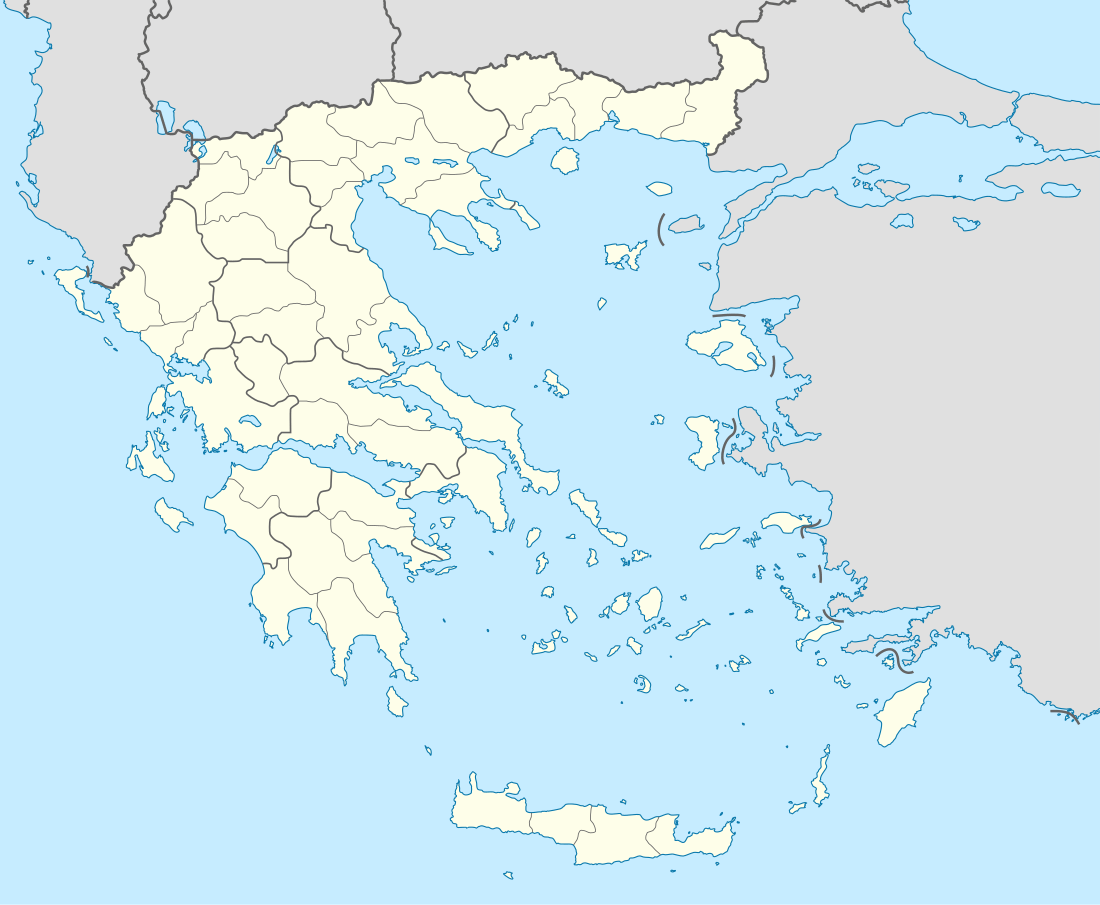Ziria, Achaea
Ziria (Greek: Ζήρια) is a village and a community in Achaea, Greece. It is situated in the hills near the Gulf of Corinth coast, 11 km northwest of Aigio. The community consists of the villages Ziria, Ano Ziria, Kyani Akti, Lampiri, Rodini and Sarkounas. Ziria is part of the municipal unit of Erineos. It had a population of 501 in 2011, and the population of the community was 822. Until 1998, Ziria was an independent commune. It became part of Erineos under the 1998 Capodistrian Plan, and Erineos became part of Aigialeia at the 2011 Kallikratis reform.
Ziria Ζήρια | |
|---|---|
 Ziria | |
| Coordinates: 38°18′N 21°59′E | |
| Country | Greece |
| Administrative region | West Greece |
| Regional unit | Achaea |
| Municipality | Aigialeia |
| Municipal unit | Erineos |
| Population (2011)[1] | |
| • Rural | 501 |
| Community | |
| • Population | 822 (2011) |
| Time zone | UTC+2 (EET) |
| • Summer (DST) | UTC+3 (EEST) |
History
The area around Ziria in the ancient times was part of the Achaean League. Today's Lampiri was the port of the ancient town Erineus, which was destroyed in 412 BC by Athenian and Corinthian generals. The English antiquarian and topographer William Martin Leake travelled in the area the first half of 19th-century and in his book "Peloponnesiaca: A suplement to the travels on the Morea" he mentions the village as "vineyards of Lambiri" and the bay of Lambiri as "the only semblance of a harbor between Aigio and Psathopyrgos.[2] Also the famous French historian,explorer and diplomat François Pouqueville who travelled through the area in 1816 mentions the place with the name "Lambir-ta-ampelia" (ampelia means vineyards in Greek) and he also mentions the existence of a khan for travellers there.[3]The name Lampiri comes from the Frankish nobleman Gerardin de Lambrie who ruled the area in the 14th century.
External links
See also
References
- "Απογραφή Πληθυσμού - Κατοικιών 2011. ΜΟΝΙΜΟΣ Πληθυσμός" (in Greek). Hellenic Statistical Authority.
- Peloponnesiaca: A suplement to the travels on the Morea, William Martin Lake, London, 1846 (available online in books.google.com)
- "Voyage de la Grece", par F.-C.-H.-L. Pouqueville, Paris, 1820–1822, 20 édit., 1826–1827, 4th Volume)